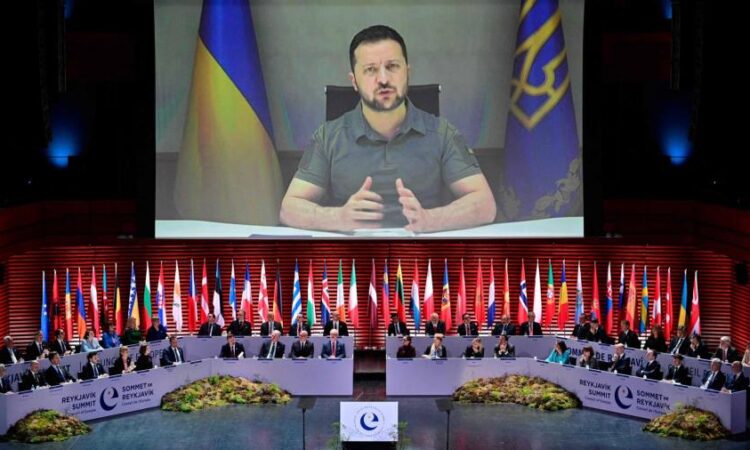
The writer is editorial director and a columnist at Le Monde
Conceived as a peace project in the 20th century, the EU managed to grow, in size and substance, through the end of the cold war to the early years of the 21st century. The going got tough in 2010 with the sovereign debt crisis. For the past decade, the union has gone from one crisis to another, successfully overcoming all of them, including the mother of all EU crises, Brexit. But the challenge now looming, forced by Russia’s imperialist aggression, is of another dimension.
Nobody knows what absorbing Ukraine, a country of around 35mn inhabitants devastated by a brutal war, into the EU will look like. It is an unprecedented endeavour which, if carried through, will deeply transform the bloc. This is a pivotal moment for Europe. But what will it pivot to?
Not a single EU leader dares any more to speak out against the prospect of enlargement to accommodate Ukraine and Moldova. It may be for fear of Ukrainian president Volodymyr Zelenskyy’s very effective habit of naming and shaming Europe’s reluctant warriors. It could be out of admiration for the energy expended by the Kyiv government, pushed by local NGOs, in fulfilling the conditions set by the European Commission as part of the country’s EU candidate status.
To Ukrainians, the prospect of joining the EU has become the light at the end of the tunnel — a matter of survival. You do not take this hope away from people bravely fighting a war and defending your values.
This goal was officially endorsed by the EU’s 27 member states in June 2022. Ursula von der Leyen, the European Commission’s president, has been a driving force in this effort, stating as soon as the war started: “Ukraine is one of us and we want them in the European Union.”
But when it comes to the questions of how and when, sensitivities differ from west to east and from north to south. And the scope of the issues raised by the prospect of Ukrainian and Moldovan accession is staggering.
First, how big should the enlargement be? If the EU is serious about opening the door to Ukraine and Moldova, can it leave the countries of the western Balkans lingering in the waiting room?
Enlargement is also about security and eliminating the grey zones between the EU and Nato space and Russia which have proven so fertile for Russian and Chinese influence. Logically, keeping the western Balkans out will make them even more vulnerable. Then will come the question of Georgia — which would raise the number of member states, potentially, from 27 to 36.
Here comes the hard part. If you liked the confusing, slow-moving, veto-prone 27-member EU, you will love the dysfunctional, chaotic life of a 36-member group.
This is the greatest fear of France and Germany: the dilution of the European project in a disparate group of nations, each of them fighting for its own interests. The goal of the founding member states remains an “ever closer union”, and they expect new entrants to contribute to this construction. For the French, the only way to avoid paralysis in an enlarged EU is to reform its governance. German chancellor Olaf Scholz advocates switching from unanimity to majority voting for decisions on foreign policy and tax matters. This would mean the end of rule by consensus. Berlin has rallied Paris and a handful of other capitals around its proposal.
There is “no way in hell the EU will get a consensus to get rid of unanimity”, a senior official from a Baltic country tells me. Poland agrees. The showdown will come in October, when the Commission gives its report on Ukraine’s implementation of EU recommendations. That will provide the basis on which the member states will decide whether to open accession negotiations with Kyiv.
There are many more differences to bridge. The swift reaction from several central European states, notably Poland, over the negative impact of the export of grain from Ukraine on their economy is a taste of things to come: these will be no easy discussions, even with Kyiv’s closest supporters. Yet failure is not an option. Not only would it have tragic consequences for Ukraine, it would also deprive Europe of its most formidable strategic tool — accession negotiations.
Meanwhile, one new and striking trend is already clear: Russia’s war in Ukraine has given post-communist member states a stronger voice within the EU. To some of their young leaders, the original vision of Europe nurtured by the founding members belongs to another era. They now own the European project as much as the founders do. And they intend to shape it just as much.






